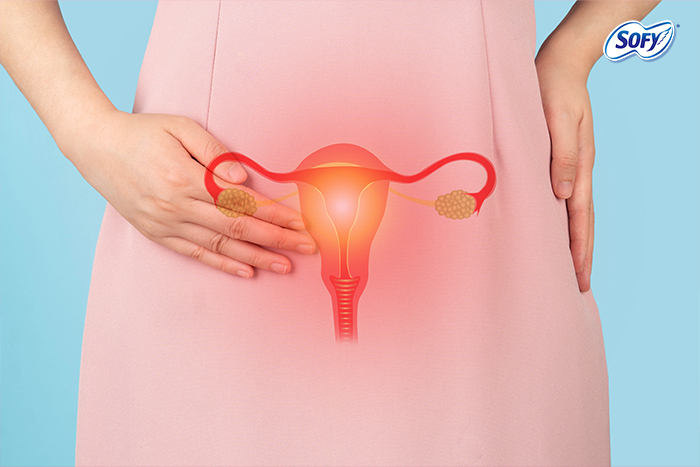Let’s be real for a second—periods are already a rollercoaster ride filled with cramps, cravings, and emotional chaos. But just when you think you’re done and ready to embrace freedom, BAM! A vaginal infection decides to crash the party. Ugh, seriously? Why is this happening, and how can we make it stop?
First Things First: Why Do Infections Love Post-Period Time?
The days after your period are like the awkward transition between winter and spring—things are adjusting. During periods, your vaginal pH (which is naturally acidic to keep things balanced) can take a bit of a hit. Blood has a neutral pH, so when it hangs around, it messes with the acidic environment down there, leaving you more vulnerable to infections.
Add to this the fact that your vagina has been through a lot, so it might feel a little irritated. And if you weren’t using the right period products (or changing them often enough), bacteria might’ve gotten the upper hand. No wonder infections sneak in like uninvited guests!
The Usual Culprits
Okay, so what kind of infections are we talking about? Here’s the lineup of troublemakers:
- Yeast Infections
That classic itchy situation? Yeah, that’s probably a yeast infection. The imbalance in your vaginal flora (thanks to period blood or hormones) gives yeast the perfect excuse to grow. - Bacterial Vaginosis (BV)
BV isn’t about bacteria moving in—it’s about the wrong kind of bacteria taking over. If you’ve noticed an odd fishy smell or unusual discharge, BV might be the issue. - Urinary Tract Infections (UTIs)
Yep, even your bladder can’t escape the drama. If you’re not hydrating enough during your period, bacteria near the urethra can cause post-period trouble.
How To Not Let Infections Ruin Your Vibe
Now that we know what’s going on, let’s arm ourselves with some tips to keep infections at bay:
Keep It Clean, But Don’t Overdo It
You don’t need to scrub or use fancy cleansers to stay fresh—your vagina is self-cleansing, like a magical washing machine. Just rinse with water and avoid douching or using heavily fragranced products.
Choose The Right Pads (This Is Where SOFY Comes In!)
Girl, your period products matter! And SOFY has your back.
a. SOFY AntiBacteria Pads: These are total lifesavers for staying dry and clean while keeping bacteria in check. Bye-bye, irritation!
b. SOFY Bodyfit Pads: For those heavy-flow days when you just need something reliable, this range hugs your curves like it was made for you.
-
- SOFY Overnight Pads: Don’t let that unclean feeling linger on the entire night. Choose extra protection for the night, and stay fresh and confident.
- SOFY Pantyliners: Even on non-period days, vaginal discharge or spotting occurs. Pantyliners keep you clean, dry, and confident, preventing wetness, odor, and stickiness.
Switching to pads that suit your needs can make a huge difference in preventing irritation and infections. Plus, who doesn’t love options?
Stay Dry Down There
Moisture is bacteria’s playground. Make sure to change your pads often and wear breathable cotton undies. (Skip the synthetic lace for now—your comfy grandma panties are calling!)
Hydrate, Hydrate, Hydrate
Flush out toxins by drinking plenty of water. Yes, it’s an overly done advice, but it works!
You’ve Got This, Girl
Periods are already tough, and dealing with infections afterward can feel like the tough times just don’t seem to end. But with the right care and some SOFY magic (seriously, those AntiBacteria Pads are a game-changer), you can bounce back stronger and fresher.
FAQ’s
2. Can using sanitary pads for too long cause infections?
Yes, wearing the same pad for many hours creates a warm and moist space, which is ideal for bacteria or fungus to grow. Changing pads every 4–6 hours helps reduce this risk and keeps the area clean and dry.
3. How does menstrual blood affect the vaginal pH balance?
Menstrual blood has a higher pH level than the natural vaginal environment. This shift can make the area more alkaline, reducing the body's ability to fight off unwanted microbes, which may result in infections.
4. What are the common signs of a post-period vaginal infection?
Some signs include itching, a burning feeling, unusual discharge (thick, white, or smelly), and discomfort while urinating. If you notice these, it’s a good idea to talk to a doctor.
5. Can poor hygiene during periods lead to infections?
Yes, not washing the vaginal area properly or using unclean hands while changing pads can introduce germs. Keeping good hygiene during periods is important to avoid infections and irritation.
6. Are scented pads or wipes safe during periods?
Scented products may cause irritation or allergic reactions in sensitive areas. They can disturb the natural balance and increase the chances of infection. It's better to use unscented, soft, and breathable pads.
7. Can tight or synthetic underwear cause infections post-period?
Wearing tight or non-cotton underwear can trap moisture and reduce airflow, making the area more prone to infections. Cotton underwear helps absorb moisture and keeps the area breathable.
8. How can I prevent infections after my period ends?
To prevent post-period infections:
- Change pads often
- Wash the area with clean water
- Avoid harsh soaps
- Wear breathable underwear
- Maintain overall hygiene
These habits help keep the vaginal area healthy.
9. Are vaginal infections after periods common?
Yes, they are fairly common, especially if hygiene is not properly maintained or if someone is sensitive to changes in their menstrual cycle. The good news is, they can often be prevented with the right care.
10. When should I visit a doctor for a vaginal infection?
If you experience itching, unusual discharge, bad odor, or burning that doesn’t go away in a few days, it’s best to see a doctor. Getting the right advice early can prevent the problem from becoming worse.

